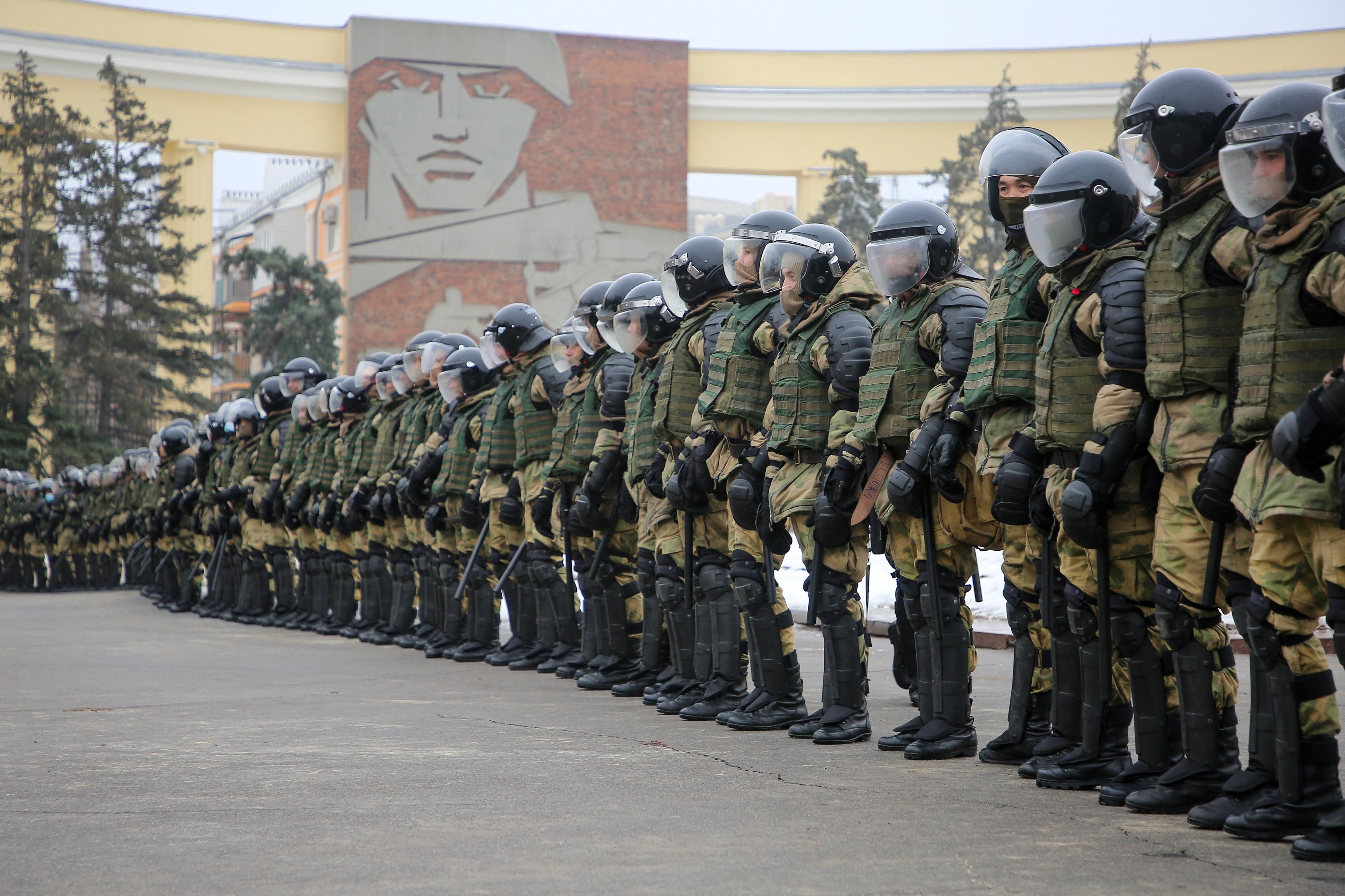What We're Watching: Putin's next move, jabs for Palestinians, Wine goes to court in Uganda
What next for Navalny? Thousands of protesters supporting jailed Russian dissident Alexei Navalny braved an overwhelming police response on Sunday, turning out in more than 80 cities across the country to demand his release from prison. It was the second protest to occur in the two weeks since Navalny was jailed after his return from Germany, and more than 5,000 people were arrested nationwide. The intensity of the police response shows the Kremlin is taking no chances with the protesters, even though their numbers are still relatively small — nowhere near, say, the hundreds of thousands who poured into the streets of Belarus' capital last fall. And it's hard to imagine Vladimir Putin agreeing to release Navalny under pressure from the streets. In fact, it looks like his kangaroo courts are gearing up to lock up the nettlesome anti-corruption crusader and throw away the key. Europe and the US have threatened action if that happens, but sanctions against Russia have proved ineffective in the past. Lacking a political party in a system that is rigged for the party in power anyway, Navalny only has the streets: can they really shake things up enough from below that power starts to crack at the top?
Israel delivers some COVID vaccines to Palestinians: Israel has agreed to send 5,000 doses of COVID-19 vaccine to Palestinian front-line workers in the occupied West Bank. After rolling out the world's most successful vaccination drive, having already inoculated more than 57 percent of its entire population, Israel came under fire in recent weeks for failing to include Palestinians in Gaza and the West Bank in its ambitious inoculation scheme, though Israeli Arabs and Palestinians living in East Jerusalem were given the jab. Israel, for its part, says that under the terms of the Oslo Accords, the de-facto law of the land, the Palestinian Authority (PA) should oversee healthcare for its people. But critics say that the Fourth Geneva Convention states that an occupying power (Israel) has a clear responsibility to assist those living under its occupation (the Palestinians). While Israel's approval of the transfer is a positive development, the PA, which governs the West Bank, is still waiting on millions of doses to vaccinate its 2.5 million people. This deal also doesn't include the Hamas-controlled Gaza Strip, which already has one of the worst healthcare systems in the world. Palestinians (in the West Bank and Gaza) have inked deals for Russia's Sputnik V vaccine, the AstraZeneca drug, and are also waiting on batches through the international COVAX system which aren't expected to arrive until March.
Mr Wine goes to court: Ugandan opposition leader Bobi Wine has called on his country's Supreme Court to nullify the results of last month's election in which president Yoweri Museveni — a former rebel leader in power since the 1980s — was declared the winner. Wine and his supporters allege ballot-stuffing and other fraud, and argue that violence directed at Wine by Museveni's forces during the campaign made it impossible for the election to be free and fair. By taking his arguments to a court packed with Museveni appointees, Wine — a former pop star who is popular with younger, urban Ugandans — runs the risk of having his objections formally stricken down altogether. But he and his supporters are making the gamble that the opportunity to present their arguments is, by itself, worth the effort in order to expose the president.
